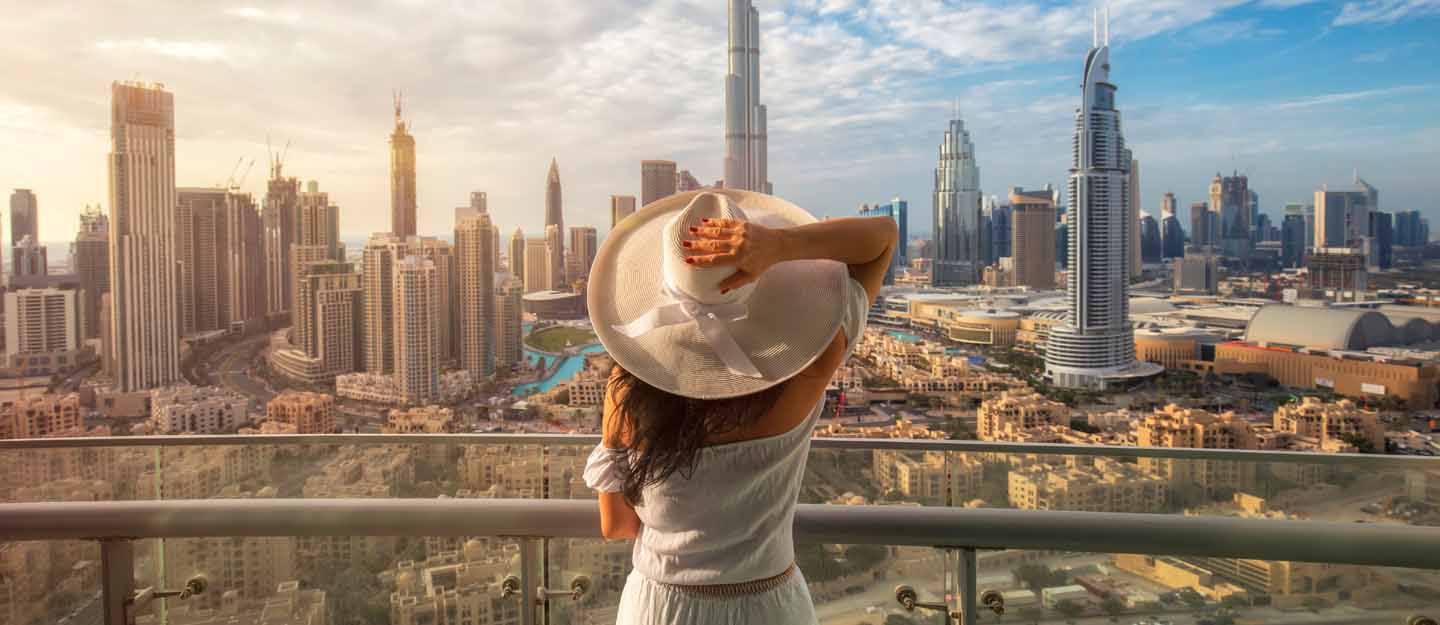
Discover the cultural rules and norms to follow when visiting Dubai, ensuring a respectful and enjoyable experience.
When visiting Dubai, it's important to dress modestly and respect the local culture. Both men and women should avoid wearing revealing or tight clothing, as it can be considered disrespectful. Women are expected to cover their shoulders and knees, and it's recommended to carry a shawl or scarf to cover up if necessary. Men should also avoid wearing shorts in public places.
In certain areas, such as mosques or religious sites, it's important to dress even more conservatively. Women may be required to wear an abaya, a loose-fitting black robe, and cover their hair with a scarf. It's always a good idea to carry a lightweight abaya or long-sleeved cardigan to ensure you can comply with any dress code requirements.
By dressing appropriately, you show respect to the local culture and ensure a more enjoyable experience during your stay in Dubai.
Greeting people in Dubai follows certain cultural norms that are important to be aware of. When meeting someone for the first time, it's customary to greet them with a handshake, especially in more formal settings. However, it's important to note that some Emirati women may prefer not to shake hands with men.
In addition to handshakes, it's also common to exchange greetings by saying 'As-salamu alaykum,' which means 'Peace be upon you' in Arabic. This is a traditional Islamic greeting and is widely used in Dubai. Responding with 'Wa alaykum as-salam,' meaning 'And peace be upon you,' is the appropriate reply.
Remember to always greet people with respect and observe their cultural preferences when it comes to greetings.
Ramadan is a significant month in Dubai and observing the customs associated with it is important. During Ramadan, Muslims fast from sunrise to sunset, and it's essential to show respect and sensitivity to those who are fasting. This means refraining from eating, drinking, or smoking in public during daylight hours.
In addition to fasting, Ramadan is a time for increased prayer and reflection. It's important to be mindful of this and avoid loud or disruptive behavior, especially in close proximity to mosques or other religious sites.
By respecting Ramadan and understanding its significance, you demonstrate cultural sensitivity and contribute to a harmonious atmosphere during this holy month.
Dubai has its own unique social etiquette that visitors should be aware of. One important aspect is the concept of personal space. While it may vary depending on the context, it's generally advisable to maintain a respectful distance when interacting with others.
In public places, it's important to be mindful of noise levels and avoid causing disturbances. Public displays of affection should also be avoided, as they are considered inappropriate. Respect for local customs and traditions is key in navigating Dubai's social etiquette.
By being aware of and respecting the social norms in Dubai, you can ensure a positive and respectful experience for yourself and those around you.
Dubai offers a wide range of culinary experiences, and understanding the dining etiquette can enhance your enjoyment of the local cuisine. One important aspect is the use of the right hand for eating. In Dubai, it's customary to eat with your right hand, as the left hand is considered unclean.
When dining in a traditional Arabic restaurant, it's common to share dishes with others at the table. This promotes a sense of community and allows you to try a variety of flavors. Remember to always take small portions and wait for the host to start eating before you begin.
Additionally, it's important to show appreciation for the food by complimenting the host or chef. Sharing a meal is an important social activity in Dubai, and by understanding and respecting the dining etiquette, you can fully immerse yourself in the local culture.
Topics: